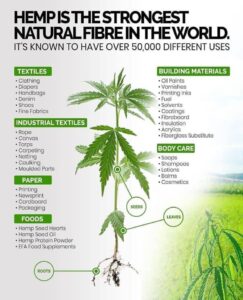Welcome to Laa Dee Daa, my Eco-Friendly Website
What is Eco-Friendly?

Eco–friendly means being earth-friendly or doing no harm to the environment.
Eco-friendly is also referred to as environmentally friendly, environment-friendly, nature-friendly, and green, which are sustainability terms that claim reduced, minimal, or no environmental harm. Eco-friendly refers to products that contribute to green living or practices that help conserve resources like water and energy. Eco–friendly products also prevent contributions to air, water, and land pollution.
Eco-friendly products are made from renewable, biodegradable, or recycled materials, and do not contain harmful chemicals or pollutants. Eco-friendly services are those that reduce energy consumption, greenhouse gas emissions, or waste generation, and promote conservation or restoration of natural resources. Eco-friendly practices are those that adopt sustainable or environmentally friendly lifestyles, such as using public transportation, composting, and buying local and organic food.
Some of the most Eco-Friendly materials are
-
-
-
- Hemp
- Organic Cotton
- Linen
- Soy Silk
- Cashmere
- Any recycled or pre-loved
-
-
Eco-friendly products help to conserve energy and also prevent air, water, and noise pollution. They prove to help the environment and also prevent human health from deteriorating.
How to Become Eco-Friendly
Becoming eco-friendly is not only beneficial for the environment but also for your health, well-being and finances.
There are many ways to reduce your environmental impact and live more sustainably, such as:
-
-
-
- Use renewable energy sources, such as solar panels, wind turbines or hydroelectric power, to power your home and appliances. This can help you save money on your electricity bills and reduce greenhouse gas emissions.
- Recycling and composting your waste, instead of sending it to landfills or incinerators. This can help you conserve natural resources, reduce pollution and create fertile soil for your garden.
- Buying organic, local and seasonal food, instead of imported, processed and packaged food. This can help you support local farmers, reduce your carbon footprint and avoid harmful chemicals and pesticides.
- Choosing eco-friendly products, such as biodegradable, recycled or reusable materials, instead of plastic, synthetic or disposable items. This can help you reduce waste, save money and protect wildlife and ecosystems.
- Adopting a plant-based diet, or at least reducing your consumption of meat and dairy products. This can help you improve your health, lower your cholesterol and blood pressure and prevent chronic diseases. It can also help you reduce animal suffering, water consumption and deforestation.
- Taking public transportation, biking or walking, instead of driving or flying. This can help you reduce your fuel consumption, air pollution and greenhouse gas emissions. It can also help you stay fit, active and sociable.
- You are educating yourself and others about environmental issues and solutions, and acting to support eco-friendly causes and policies. This can help you raise awareness, inspire change and make a difference in your community and the world.
-
-
Following these steps can make you eco-friendly and enjoy a healthier, happier, and more fulfilling life.
-
-
-
- Reduce, Reuse and Recycle
- Conserve Water and Electricity
- Plant more trees
- Protect local water sources
- Drive less, walk more
- Use Energy-Efficient Products
- Grow your Products
- Don’t litter
- Use Recycled Products
- Buy Eco-Friendly Products
-
-
Our families grow and thrive using organic and safe textile products, including bedding, bath essentials, and clothing. Our skin loves it, and we are promoting a cleaner, greener planet Earth and an ethical, accountable economy.
Sustainability:
“Meeting the needs of current generations, without compromising the future generations’ ability to meet their needs.”
